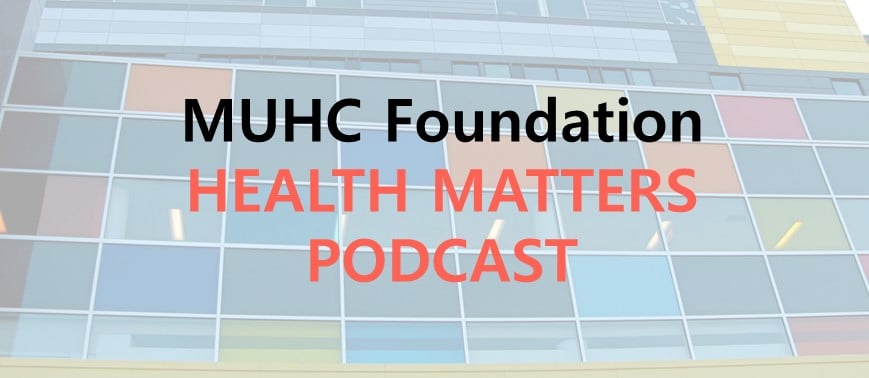This week on Health Matters, Dao Nguyen sounds the alarm on the growing risk of antimicrobial resistance and shares how researchers are working to combat the issue. Dao Nguyen is the Director of the McGill Antimicrobial Centre.
(Time on Podcast: 10:50). Antimicrobial resistance is a growing global threat. It can impact every surgery – imagine a world where antibiotics didn’t work anymore. Researchers are working on ways to combat antimicrobial resistance. Dr. Dao Nguyen discusses the history of antibiotics and the current threat of antimicrobial resistance. Antibiotics were discovered in the 1930s and completely changed the face of medicine, particularly with bacterial infections. Many people used to die from bacterial pneumonia. With antibiotics, we could begin to treat these infections, and it made modern medicine possible, including making surgeries and chemotherapy more safe. The 1940s-1980s was the golden era of antibiotics Many new antibiotics were developed into the drugs we know today. However, in the past 40 years, we haven’t discovered any new antibiotics. Many antibiotics are based on molecules that nature makes (e.g. from bacteria or fungi) that compete against microbes that infect us. During the era of antibiotic discovery, many antibiotics were sourced from soil and the environment. Companies then started looking at synthetic molecules. This unfortunately hasn’t led to the discovery that people were hoping for. We are now at this intersection of what to do next. On top of the lack of novel antibiotics, there is also the fact that we overuse antibiotics. Bacteria and microbes become resistant to these drugs over time, due to natural evolution. If we use a lot of antibiotics in the hospital setting, or if patients are exposed to too many antibiotics. There is also the use of antibiotics on farms and agriculture, which can further promote antimicrobial resistance. The environmental impact can therefore be huge. New research is focusing on the discovery of novel antibiotics, the discovery of novel adjuvants or alternatives to boost or compliment existing antibiotics, we also want ways to better diagnose bacterial infections to ensure we only prescribe antibiotics for the correct infection. We also want to know how these drug resistant bacteria move around in the hospital or the environment to stop the transmission of a drug resistant bacteria. There is a lot of exciting research happening. Examples include engineers who are ready to develop new materials that are naturally antibacterial – these can be used during surgeries to prevent infection. Others are designing novel diagnostic tests for bacterial infections. Surprisingly, these tests don’t readily exist in the healthcare setting. This will prevent patients from being inappropriately treated with the wrong antibiotics. Fundamental scientists are looking at how the use of pesticides is changing the bacteria in our water sources. There is a lot of exciting research going on, all with the goal to prevent the emerging threat of antibiotic resistance.
Listen to the Podcast
Solving one of humanity’s greatest threats. The MUHC Foundation’s Health Matters. December 4, 2022.
Where to listen:
Web: http://bit.ly/3aQfvVQ
Spotify: https://spoti.fi/32HFxrc
Apple: https://apple.co/35NvItS
